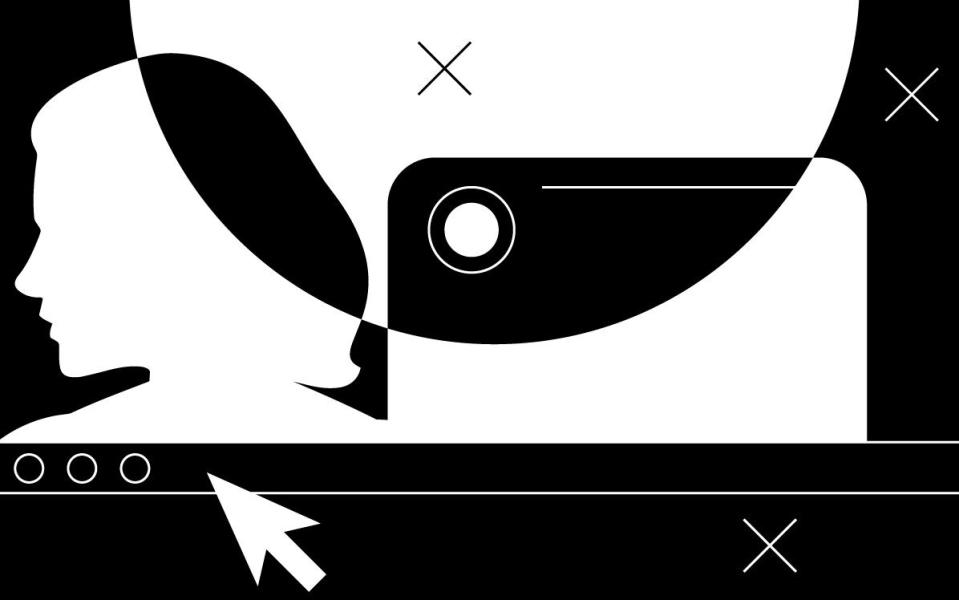Sending a naked selfie or joining a dating app is no defence to rape, says new CPS guidance

Sending a naked selfie or using a dating app does not mean sex is inevitable, according to new official guidance on rape “myths” for prosecutors.
The guidelines for Crown Prosecution Service (CPS) lawyers - updated for the first time in eight years - set out 39 myths and stereotypes that they should challenge when bringing a case to court.
They include warnings that “flirtatious behaviour” or the “way a person is dressed” or “simply the act of going back to someone’s house” should not imply consent.
Rape should also not be ruled out if someone is so drunk that they cannot give consent just as it would be wrong to assume that drink may make their evidence “unreliable.”
But the biggest changes to the new guidance are designed to take account of the emergence of myths linked to new technology such as the sharing of explicit selfies and use of dating apps and to a rise in casual sex.
It followed research by the CPS into the reasons for lower conviction rates in cases involving those aged between 18 and 24.
The list of false statements therefore includes "if you send sexual images or messages prior to meeting someone, then having sex is inevitable" and "if you meet men online or through hook-up apps you want sex and should be ready to offer sex.”
Similarly, it is false for prosecutors to assume that “if you have lots of sex, including with different people, then you are promiscuous and ‘deserve what you get’ and are not are harmed by rape,” said the guidance.
Equally, prosecutors are warned against assuming that “if someone has truly been raped then they would not seek, or want, sex soon afterwards.”
Siobhan Blake, CPS rape lead, said: "The critical issue is around consent, and the giving and understanding of consent. We must not as a society or indeed as prosecutors get distracted by some of the peripheral behaviours that might seem quite unusual to us.
"In essence a person can send a naked selfie for instance one day, that is not any sort of blanket consent to a sexual encounter on another day.
"Simply because somebody's on a hook-up app, it doesn't mean that they're giving some sort of blanket consent to any sort of sexual contact."
The guidance follows a fall in the number of rape convictions to a record low of just 1.5 per cent, as the number of rapes reported has increased.
Just 1,439 alleged rapists were convicted of rape or lesser offences in 2019/20 - down 25 per cent from 1,925 the previous year, while prosecutions also fell to a record low of 2,102 in 2019/20, compared to 3,034 in 2018/19, a fall of around 31 per cent.
Among other false statements are:
- Young adult men should not be convicted as they have their whole lives ahead of them or have good character references;
- If you drink alcohol or use drugs then you have made yourself vulnerable to being rape and you bear some of the responsibility;
- A real rape victim is visibly distressed when describing what happened to them or a real rape victim wouldn’t freeze when attacked, they would fight back;
- If the victim didn’t complain to the police immediately it wasn’t rape or if the victim didn’t say ‘no’, it’s not rape;
- Only young or attractive people get raped and strong or independent or powerful or older people don’t get raped;
- Other complaints of rape which have not resulted in successful prosecution outcomes mean the victim lacks all credibility as a witness or false allegations are common and women cry rape when they regret having sex or want to seek revenge;
- Previous withdrawals of complaints, or previous reluctance to co-operate with a prosecution, means the victim lacks credibility as a witness;
- The victim had previously consented to sex with the accused a number of times so he or she must have consented.
The guidance also highlighted the increasing number of rapes and sexual assaults associated with "chemsex", which could mean victims were concerned about being prosecuted for drug use.
It stressed the impact of trauma on victims that can hamper their ability to remember or give a consistent account of what happened.
Ms Blake said: "We're on the cutting edge of understanding the impact of trauma and the impact that has on memory and the way people behave after suffering a horrific trauma.
"It never can be forgotten that in the case of rape and serious sexual offences, they are really some of the most traumatic offences that people survive."
Claire Waxman, the London victims' commissioner, called for the CPS to undergo trauma training and update their guidance after she carried out research in the capital that showed 3% of rape allegations resulted in a conviction.
She said: "This is a much-needed update that will help to tackle pervasive myths and stereotypes around rape and the culture of disbelief.
"For too long, evidence of trauma, such as inconsistencies in memory, has been misinterpreted as victims being unreliable which has influenced charging decisions."

